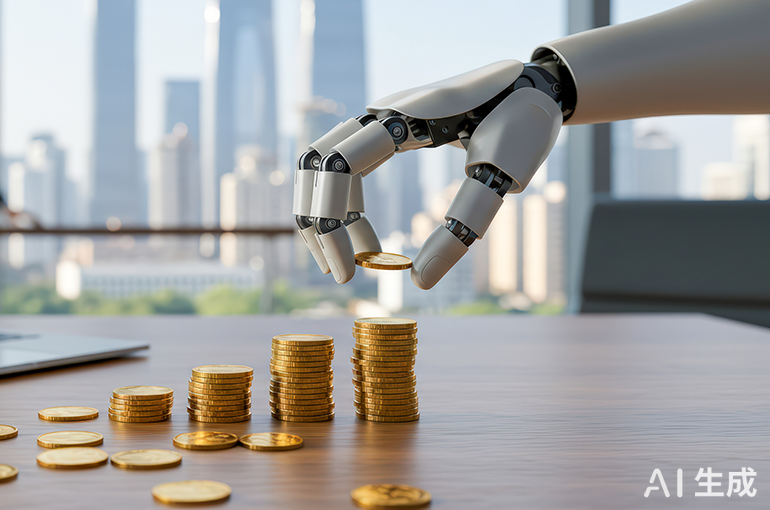 China's Capital Market to Restructure, AI to Reshape Asset Operations During 15th Five-Year Plan, Experts Say
China's Capital Market to Restructure, AI to Reshape Asset Operations During 15th Five-Year Plan, Experts Say(Yicai) Nov. 21 -- China's capital market will transform its environment, while artificial intelligence will change asset management logic during the country's 15th Five-Year Plan, according to several experts.
China's per capita gross domestic product has soared to an estimated USD14,000 this year from USD150 in 1978, with the economic structure also shifting to a "surplus economy" from a "shortage economy," Wu Xiaoqiu, an economist and former vice president of Renmin University of China, said at the Shenzhen International Finance Conference held on Nov. 19. The policy focus must change from simply expanding supply to pursuing a dynamic supply and demand belance, Wu added.
Facing the Fourth Industrial Revolution centered on AI, the core task of China's capital market during the 15th Five-Year Plan, which will run from next year through 2030, is to comprehensively restructure its environment, Wu pointed out.
Regarding assets, efforts should focus on substantially improving the quality of listed companies, while from the demand side, restrictions on long-term capital, such as insurance funds entering the market, should be relaxed, Wu noted. At the institutional level, the core of reforms is to enhance transparency and increase the cost of violations, Wu added.
Market confidence can be rebuilt by amending laws to severely punish fraud and falsification, according to Wu. "The superficial function of the capital market is financing, but its most core function lies in incentivizing innovators."
From an industrial transformation perspective, the digital and AI era is reshaping asset value, noted Wang Zhongmin, former vice chairman of the National Council for Social Security Fund. Traditional heavy assets face enormous depreciation and obsolescence risks under rapid technological iteration, making "light-asset operation" a rational choice for firms, he added.
For example, through finance leasing models, companies do not need to build their own data centers but instead lease computing power services to meet AI development needs, Wang said, adding that firms like Apple and Tesla have achieved light-asset operations by deploying 95 percent of their supply chain in China.
While assets become "lighter," capital must become "heavier," Wang pointed out. Companies can no longer rely solely on their own capital to support development and must leverage diversified capital modalities, requiring angel and venture capital investment in the startup phase, and social security funds, international capital, and others in the growth phase to form a risk-sharing mechanism, he noted.
Leading listed companies should emulate Microsoft's investment model in OpenAI, allocating 10 to 20 percent of resources to small and medium-sized innovation nodes in the supply chain, utilizing multi-tier capital such as angel investors, VCs, and social security funds to share risks and form a "win-win innovation environment along the chain," Wang pointed out.
Facing the critical juncture of concluding the 14th Five-Year Plan and launching the 15th Five-Year Plan, the insurance industry needs to upgrade from traditional risk compensation to full-cycle risk management, becoming a "stabilizer" for the national modern supply system and livelihood safety net, said Zhou Yanli, ex-vice chairman of the China Insurance Regulatory Commission.
Regarding the emerging export categories known as the "New Big Three" of electric passenger vehicles, lithium batteries, and solar cells, which contrast with the traditional "Old Big Three" of apparel, furniture, and home appliances, insurance institutions should innovate products and services for new energy equipment, robots, AI, and other emerging industries, Zhou noted, adidng that they should actively develop new insurance products related to data security, cybersecurity, and intellectual property infringement insurance.
Editor: Martin Kadiev